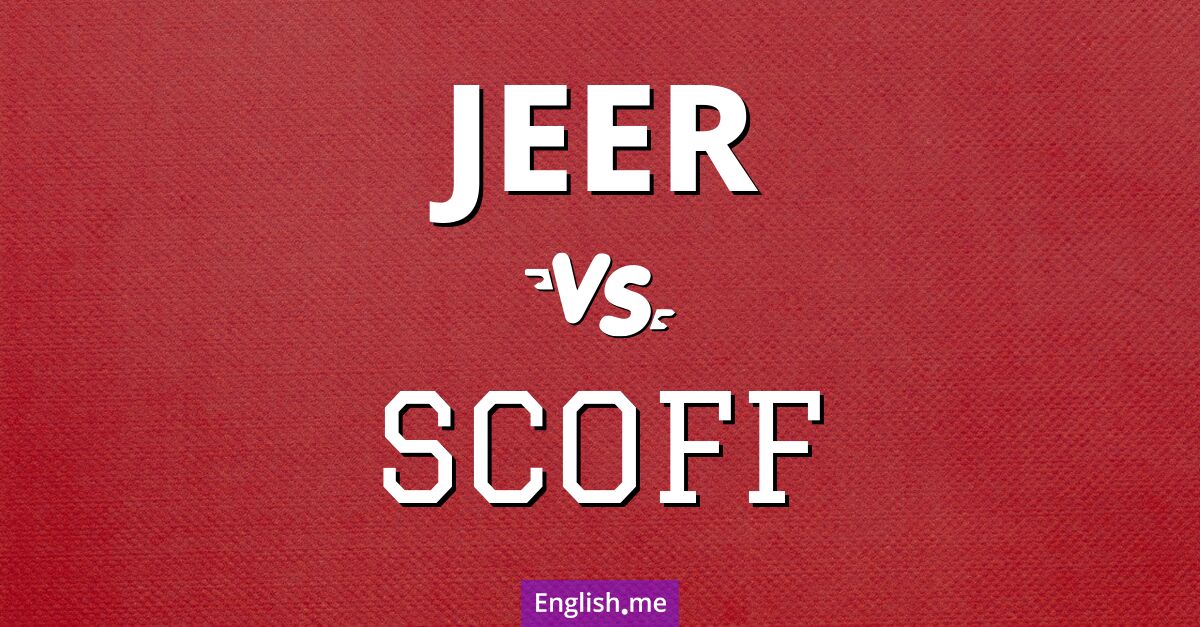"Jeer" vs. "scoff": a closer look at mockery in words
Reviewed and edited by  Lloyd Cooper 27/01/2025, 16:57
Lloyd Cooper 27/01/2025, 16:57
English.me team member

 What is similar?
What is similar?
Both "jeer" and "scoff" are verbs that involve mocking or expressing contempt. Both words convey derision or scorn towards someone or something.
 What is different?
What is different?
"Jeer" typically refers to loud, mocking remarks shouted at someone, often in a group setting. "Scoff" usually means to speak about something in a mocking or dismissive way, often expressing disbelief or skepticism.
 Which one is more common?
Which one is more common?

 Examples of usage
Examples of usage
Jeer- The crowd began to jeer at the politician after his controversial statement.
- Opposing fans jeered the player as he walked onto the field.
- Students jeered at the substitute teacher's attempt to maintain order.
- She scoffed at the idea of joining the club.
- Despite their warnings, he scoffed and continued with his risky plan.
- Critics scoffed at the artist's latest exhibition.

 English
English español
español française
française italiano
italiano deutsche
deutsche 日本語
日本語 polski
polski česky
česky svenska
svenska Türkçe
Türkçe Nederlands
Nederlands